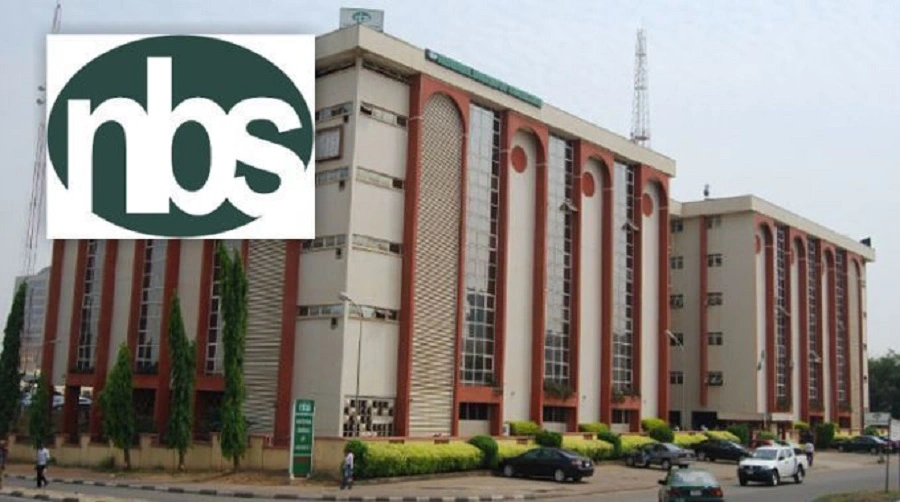Business
Despite receiving N1.88trn in 2 years 9 oil producing states’ debts skyrocket

Despite receiving N1.885 trillion from the 13 per cent oil derivation fund in two years, the nine oil-producing states’ debts as a result of loans taken from local and foreign lenders have skyrocketed.
The nine states in 2022 shared N970.20bn from the federation account through the 13 per cent derivation formula, while N901.22bn was shared by them in 2023, data from the National Bureau of Statistics (NBS) has shown.
The 13 per cent derivation fund comes from the federation’s revenue to oil-producing communities through the state governments as enshrined in Section 162, Sub-Section 2 of the Nigerian constitution.
Daily Trust reports that Abia, Akwa Ibom, Anambra, Bayelsa, Delta, Edo, Imo, Ondo and Rivers are the states that are presently accorded the oil-producing status in Nigeria.
Analysis of the data showed that Delta received the highest allocation in 2022, totalling N296.63bn, representing 31 per cent of the total revenue from the derivation account. It was followed closely by Akwa Ibom, which received N222.52bn, representing 19 per cent of the total disbursement during the period.
Other states are Bayelsa (N188.02bn), Rivers (N169.79bn), Edo (N37.49bn), Ondo (N25.95bn), Imo (N18.61bn), Abia (N6.95bn) and Anambra (N4.25bn).
In 2023, Delta again received the highest, getting N306.16bn, followed by Akwa Ibom with N205.89bn, while Rivers got the third highest with N157.58bn.
Others are Bayelsa (N156.9), Edo (N31.31bn), Ondo (N28.62bn), Imo (N10.24bn), Anambra (N9.01bn) and Abia (N4.5bn).
The 13 per cent derivation fund is different from the three per cent provided for host communities in the PIA from the oil company’s operating expenses (OPEX).
But despite the derivation funds and other allocations from the federal government, Delta, Akwa Ibom and Bayelsa are among the most indebted states in the country.
The remaining six states are not left out as they are also battling with high domestic debts and suffering from massive infrastructure decay.
According to the Debt Management Office (DMO), Delta leads with a total debt of N272.61bn, followed by Rivers and Akwa Ibom with N225.51bn and N219.62bn respectively at the end of Q3 2022.
Imo has a domestic debt of N207.52bn, followed by Bayelsa, Edo, Abia, Ondo and Anambra with N151.16bn, N110.99bn, N104.57bn, N78.82bn and 75.69bn respectively.
Also, the monthly average FAAC for Delta, Rivers, Akwa Ibom and Bayelsa from January to November, 2023, was N129.58bn.
Daily Trust further reports that Delta got N40.05bn, Rivers N35.37bn, Aiwa Ibom N31.66bn and Bayelsa N22.25bn.
Delta’s monthly average FAAC in the period under review was higher than that of Nasarawa, Ebonyi, Ekiti and Gombe states combined, while Bayelsa’s was higher than Ekiti and Gombe states combined.
In the period under review, Nasarawa got N9.11bn, Ebonyi N8.76bn, Ekiti N8.75bn and Gombe N8.05bn.
Meanwhile, the Economic and Financial Crimes Commission (EFCC) had earlier disclosed that nine governors of oil-producing states are heading for a collision over N84.7 billion siphoned from the statutory 13 per cent derivation meant for the nine oil-producing states.
It was gathered that another bone of contention was the request for the release of N52 billion recovered from former Accountant General of the Federation, Ahmed Idris,
An activist in Niger Delta, Felix Sam Jnr. said people must hold their leaders to account.
“When you look at what the oil-producing states got from 13 per cent derivation in addition to the FAAC allocation, you will agree that the governors have very little to show for it.
“People in most states don’t have necessities like potable water, electricity, roads and good schools for their children. This is an indictment on the leadership,” he said.

